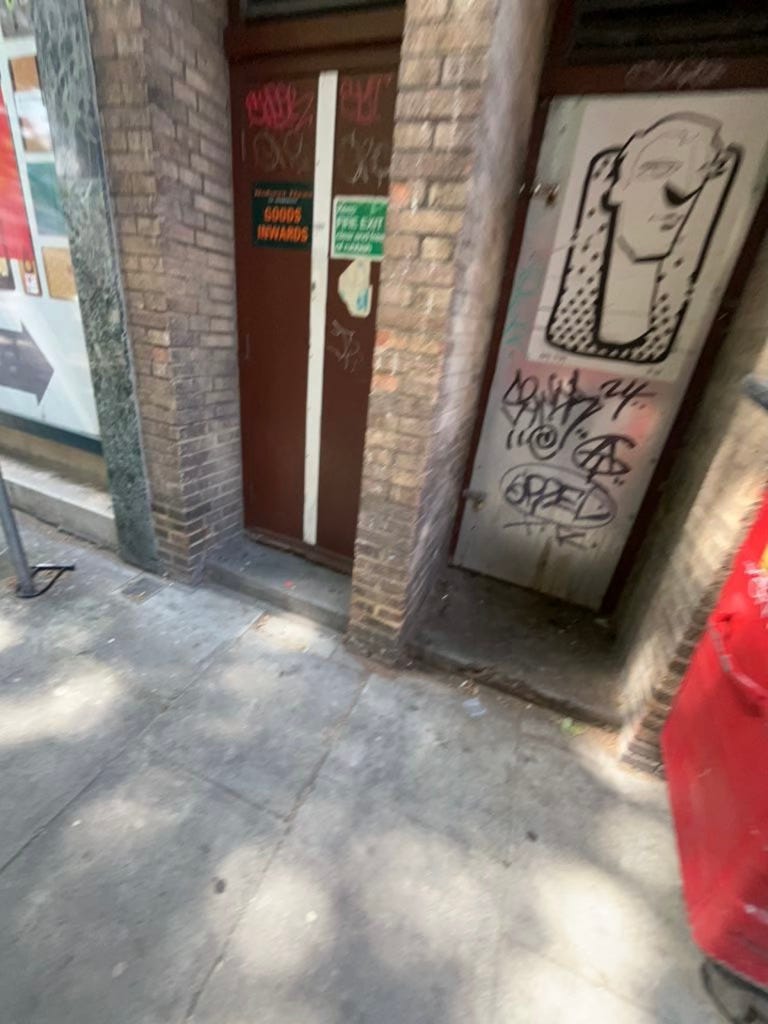Broken Doors, Smashed Laptops, and Why the Moments that Matter, Matter
The one where everything gets smashed
You know what it’s like. You get the text, something bad has happened.
The first text is to prepare you, steel you for what comes next.
The second is to remind you that they’re kids, that accidents happen, to try not to be too mad.
And the third is, inevitably, a photo, dramatically delivered without words, because a picture is worth a thousand of those.
It’s in moments like this that the companies you rely on to help need to do just that. These moments of high emotion and high stress where they need to deliver on the promises they’ve made, being accessible, empathetic, and above all, effective.
And luckily for me, my Home Insurance company (Policy Expert) were all of those things.
To start with, they were super easy to contact. Their website showed the phone number to call - no hiding it away, or being forced onto a chatbot - and three options given:
Do it on our website
Request a call back
Hold to speak to someone
When I chose option 3 - anticipating a long wait time but preferring that to the unknown timing of a callback - they answered immediately.
Then, the friendly person on the other end did something radical: she listened to the problem.
I’ve been working with contact centres a lot recently, designing frontline training, and this is the step that’s often missed the most.
The customers phones, has their 30-second script ready in their head, with all the information the agent needs to help. But as they launch into it, they get interrupted - postcode, security checks, a script—before you’re even allowed to explain the problem. After a minute of this, the slightly odd second-welcome appears.
OK thank you, that’s security passed. You’re speaking to Emily at Acme Company, how can I help you today?
Only then is the customer permitted to explain their query - which may or may not have required security clearance - and even then the agent often stops listening after the first keyword they hear, immediately putting them into a bucket of ‘stuff like this I’ve heard before’.
Because she’d let me say my piece and heard what I had to say, the rest of the conversation was easy - and quick.
First, she told me her initial reaction to whether I’d be covered for Home Emergency help - probably not, as the inside pane of glass was unbroken, so there was no security risk. This set my expectations before she took the time to look into it properly.
Next, she quickly confirmed she was right - not covered for emergency support, but I could claim for the repair, if I wanted to.
And thirdly, she thought about the overall outcome I wanted. They couldn’t help, but knew people who could - ‘look at CheckaTrade, make sure they’re specialists in this type of glass, you should be able to get someone to fix it within a week’.
Within minutes, I had an email confirming the outcome of the call, with their phone number on should I wish to get in touch again.
This really shouldn’t be that radical. But in a world of do-not-reply email addresses, automated ‘You can do that on our website’ hang-ups, and a lack of ownership for customer outcomes, it really feels it.
I wouldn’t have minded about the door. Accidents happen. But as it happens, it was only two weeks ago that the laptop suffered the same fate.
In contrast, though, the way that moment was dealt with showed why I think Policy Expert were so good.
Due to the beautifully smashed screen, I had to get a new laptop, and get it delivered to work, at The Foundation.
On the day, despite it coming to the office and the whole team being in, I got one of those dreaded ‘I’m sorry we missed you!” messages, along with a photo of the place the driver had tried to deliver it to.
Does that look like the entrance to a boutique growth consultancy that specialises in customer experience and has an office on the second floor to you?
Worse, the photo was accompanied with a threat to try and deliver it there again the next day.
Cue a panicked attempt to get in touch with the company to stop it happening again.
First, a chatbot that refused to help. Next, a delve into the Dark Web to find a phone number. Then, a relentless pressing of the ### key to try and get through to someone, before eventually, a brief conversation and a promise that someone will absolutely call me back within 60 minutes.
Of course, as you know, the call never came.
It’s easy to think about customer experiences through the lens of relationships and journeys. But more often than not, great experiences come down to moments, being there, and being great, at the moments that matter.
And more often that not, that doesn’t take anything radical. It’s just like being a good friend. Be available to speak to, be there to listen, be happy to offer some sage advice. And crucially, show you care, and actually care, about what’s happened, what’s happening now, and what happens next. It’s being there for those moments that builds trust, builds certainty, builds connection.
And if you happen to be able to fix shattered glass panels, you’ll be an even better friend, too.





